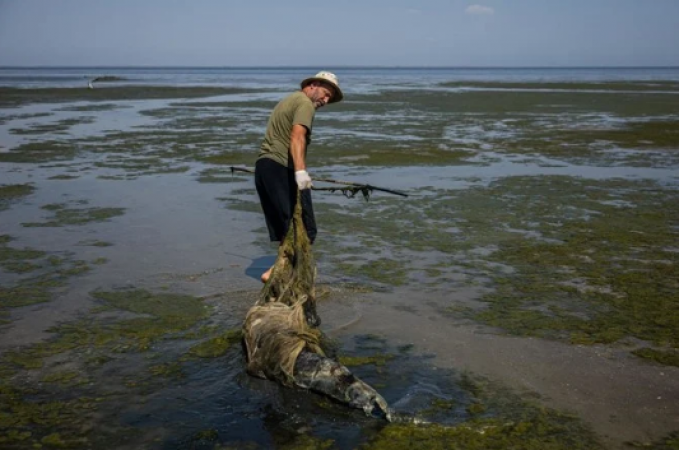
Montreal: On Wednesday, the Ukraine conflict overshadowed a key UN summit on biodiversity in Montreal as Western nations condemned the environmental damage caused by Russia's invasion.
Conflict in Ukraine overshadowed a key UN summit on biodiversity in Montreal on Wednesday as Western nations condemned the environmental damage caused by Russia's invasion.
The European Union and New Zealand launched their attacks after Ukrainian President Volodymyr Zelensky accused Moscow of "ecocide" and destroying his country's dolphin population. New Zealand also spoke on behalf of other countries, including the United States.
Also Read: Expert: Chinese president's trip to Saudi Arabia will increase funding for the CPEC
In response, Russia said the gathering was taking place in the wrong place and accused its opponents of trying to sabotage a new international agreement on the environment.
At the conference known as COP15, Hugo Schali, a representative of the European Union, said that "war causes pollution and long-term environmental degradation, destroying protected areas and natural habitats."
The continuation of the war, he continued, "requires urgent action on nature conservation and restoration."
Speaking on behalf of the JUSCANZ group, which also includes Japan, Australia and the United States, New Zealand's Rosemary Patterson continued, "The widespread environmental destruction and cross-border damage caused by Russia's military aggression against Ukraine cannot be ignored. could."
Also Read: Fundamentalists locked the historical Gurudwara by calling it a 'mosque'
Denis Rebrikov, a representative of Russia, invoked the right of reply and said: "We strongly deny the allegations leveled against us as being outside the scope of this COP on Biodiversity."
He said that despite the damage caused to the ecosystem, recent conflicts such as Iraq, Libya, Afghanistan and Syria were not discussed at the Environment Summit.
Rebrikov continued, "It is difficult to avoid the impression that these countries are deliberately attempting to usurp a global framework on biodiversity".
In a statement earlier that day, Ukrainian President Zelensky claimed thousands of dead dolphins had washed up in the Black Sea and accused Russia of "ecocide". According to Ukrainian scientists, the use of military sonar by Russian warships is to blame for the incident.
From December 7 to December 19, representatives from around the world met in Canada to try to negotiate a new deal for nature: a 10-year commitment to save the planet's forests, oceans and species before it's too late.
Also Read: Putin acknowledges that Russia's conflict in Ukraine may last for a while
The draft targets include a significant commitment to protect 30% of the world's land and oceans by 2030, the elimination of harmful subsidies for agriculture and fishing, the fight against invasive species and the reduction of pesticide use.